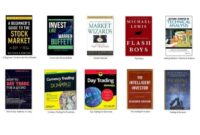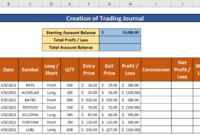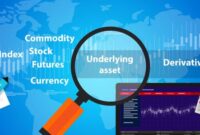Delving into How to improve Forex trading skills, this introduction immerses readers in a unique and compelling narrative, with a focus on continuous learning, solid trading plans, demo account utilization, emotional control, and technical analysis.
Read on to discover key strategies and tips to elevate your Forex trading game.
Importance of Continuous Learning in Forex Trading

Continuous learning is crucial for improving forex trading skills as the financial markets are constantly evolving. Staying updated with the latest trends, strategies, and tools in forex trading can help traders adapt to changing market conditions, minimize risks, and maximize profits.
Methods of Continual Education in Forex Trading
- Attend trading seminars and workshops: Participating in trading events allows traders to learn from industry experts, gain new insights, and expand their network.
- Take online courses: Enrolling in online courses and webinars on forex trading can provide valuable knowledge and practical skills to enhance trading performance.
- Read trading books and articles: Keeping up with industry publications, books, and blogs can offer new perspectives, strategies, and techniques to apply in trading.
- Join trading communities: Engaging with other traders through online forums, social media groups, and trading platforms can facilitate knowledge sharing and idea exchange.
Impact of Staying Updated with Market Trends on Trading Success, How to improve Forex trading skills
Staying updated with market trends is essential for trading success as it allows traders to make informed decisions based on current market conditions. By analyzing market data, economic indicators, geopolitical events, and news releases, traders can anticipate price movements, identify trading opportunities, and manage risks effectively. Continuous learning and staying informed can give traders a competitive edge in the forex market and improve their overall trading performance.
Developing a Solid Trading Plan
Having a well-thought-out trading plan is essential for success in the forex market. It helps traders stay disciplined, manage risks effectively, and make informed decisions. Here are some key elements that should be included in a comprehensive trading plan:
Elements of a Comprehensive Trading Plan
- Clear trading goals: Define your financial goals, risk tolerance, and time horizon.
- Trading strategy: Choose a strategy that aligns with your goals and trading style, whether it’s day trading, swing trading, or trend following.
- Risk management rules: Set rules for position sizing, stop-loss orders, and risk-reward ratios to protect your capital.
- Trade journal: Keep a detailed record of your trades, including entry and exit points, reasons for the trade, and outcomes.
- Review and adjustment: Regularly review your trading plan and adjust it based on your performance and market conditions.
Comparison of Trading Strategies
- Technical analysis: Focuses on historical price data and chart patterns to predict future price movements.
- Fundamental analysis: Analyzes economic indicators, news events, and geopolitical factors to assess the intrinsic value of a currency.
- Sentiment analysis: Gauges market sentiment and positioning to identify potential market reversals or continuations.
Tips for Risk Management
- Set a maximum risk per trade to limit potential losses.
- Use stop-loss orders to automatically exit losing trades at predetermined levels.
- Diversify your trades to reduce overall risk exposure.
- Avoid overleveraging your account to prevent margin calls and account blowouts.
Utilizing Demo Accounts for Practice: How To Improve Forex Trading Skills

When it comes to improving your forex trading skills, utilizing demo accounts for practice can be extremely beneficial. Demo accounts provide a risk-free environment where you can hone your strategies, test new approaches, and build confidence without the fear of losing real money.
When it comes to Forex trading, understanding the different types of Forex markets is crucial. From spot markets to futures markets and options markets, each has its unique characteristics and risks. To delve deeper into this topic, check out this comprehensive guide on Types of Forex markets.
Benefits of Using Demo Accounts
- Allows you to practice trading in real-time market conditions without financial risk.
- Helps you familiarize yourself with the trading platform and tools.
- Provides an opportunity to test different trading strategies and techniques.
- Allows you to track your progress and evaluate your performance over time.
Effective Ways to Utilize Demo Accounts
- Set specific goals for each practice session to focus on improving particular aspects of your trading.
- Treat the demo account as if it were a real trading account to simulate actual trading conditions.
- Experiment with different risk management techniques to find what works best for you.
- Keep a trading journal to analyze your trades, identify patterns, and learn from your mistakes.
Testing New Strategies Without Financial Risks
One of the key advantages of using demo accounts is the ability to test new strategies without risking any real money. This allows you to experiment with different approaches, refine your techniques, and gain confidence in your trading decisions before implementing them in a live trading environment. By using a demo account to test new strategies, you can fine-tune your approach and improve your overall trading performance over time.
Importance of Emotional Control in Trading
Emotional control and discipline play a crucial role in forex trading as they can greatly impact decision-making and overall performance. Traders who are able to manage their emotions effectively are more likely to make rational choices and avoid impulsive decisions that can lead to losses.
Techniques for Managing Emotions in Trading
- Practice Mindfulness: Stay present in the moment and focus on the task at hand to prevent emotions from clouding judgment.
- Set Clear Trading Goals: Establishing clear objectives and sticking to a trading plan can help reduce the influence of emotions like fear and greed.
- Utilize Stop-Loss Orders: Implementing stop-loss orders can help limit potential losses and prevent emotional decision-making during volatile market conditions.
- Maintain a Balanced Lifestyle: Ensuring a healthy work-life balance and engaging in activities outside of trading can help reduce stress and emotional reactions while trading.
Impact of Emotional Intelligence on Trading Decision-Making
Emotional intelligence, which involves being aware of and managing one’s emotions, can significantly enhance decision-making in trading. Traders with high emotional intelligence are better equipped to handle stress, remain objective, and make informed choices based on market analysis rather than emotional impulses.
Analyzing Forex Charts and Technical Indicators

Analyzing forex charts and technical indicators is crucial for making informed trading decisions in the forex market. By studying these tools, traders can identify trends, patterns, and potential entry or exit points, leading to more successful trades.
Common Technical Indicators in Forex Trading
- Moving Averages: These indicators smooth out price data to identify trends over time.
- Relative Strength Index (RSI): Measures the speed and change of price movements to determine overbought or oversold conditions.
- Bollinger Bands: Shows volatility and potential price reversal points based on standard deviations.
Interpreting Technical Indicators
- Understanding the crossover of moving averages can indicate changes in trend direction.
- RSI readings above 70 suggest overbought conditions, while readings below 30 indicate oversold conditions.
- Bollinger Bands narrowing may signal a period of low volatility, while widening bands suggest increasing volatility.
Tips for Improving Technical Analysis Skills
- Practice using different technical indicators on historical data to see how they perform.
- Combine multiple indicators to confirm signals and reduce false positives.
- Stay updated on market news and events that may impact the effectiveness of technical indicators.
By mastering the art of continuous learning, developing a solid trading plan, utilizing demo accounts effectively, maintaining emotional control, and analyzing technical indicators, you can enhance your Forex trading skills and achieve greater success in the market.
One of the fundamental concepts in Forex trading is the bid and ask price. Knowing how to navigate these prices can make a significant impact on your trading success. To learn more about bid and ask in Forex and how they influence your trades, visit this informative article on Bid and ask in Forex.
For beginners in the Forex market, understanding what Forex trading entails is essential. From currency pairs to leverage and margin, there’s a lot to grasp before diving into the world of Forex. To gain a better understanding of what Forex trading is all about, take a look at this detailed explanation on What is Forex trading.




